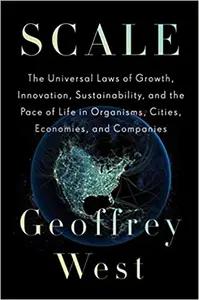The Structure of Scientific Revolutions
By Thomas Kuhn
Category
ScienceRecommended by
"The Structure of Scientific Revolutions" by Thomas Kuhn is a groundbreaking work that explores the nature and development of scientific knowledge.
In this influential book, Kuhn argues that scientific progress is not a straightforward accumulation of knowledge, but rather a series of paradigm shifts. He introduces the concept of scientific paradigms, which are shared frameworks of understanding that shape scientific research and experimentation.
Kuhn then examines how scientific revolutions occur when new paradigms supersede old ones. He suggests that these revolutions are not solely based on empirical evidence or rational arguments, but also involve sociological and psychological factors. Scientists often cling to established paradigms, resisting change until a crisis arises that challenges the existing framework.
Using numerous historical case studies, Kuhn demonstrates how revolutionary changes in scientific thinking have occurred, from the shift from geocentrism to heliocentrism in astronomy to the transformation of classical physics into quantum mechanics. He emphasizes the importance of anomalies or discrepancies that arise within a paradigm, which eventually contribute to its downfall and the adoption of a new one.
By highlighting the role of scientific communities, Kuhn sheds light on the social aspects of scientific progress. He shows how scientific groups, through communication and peer review, reinforce and maintain shared paradigms, but can also hinder the adoption of new ideas.
"The Structure of Scientific Revolutions" challenges the prevailing view of scientific progress as a linear and continuous process. It reveals the complex interplay between scientific theories, paradigms, and social dynamics, offering valuable insights into the nature of scientific knowledge and the revolutions that shape its development.
In this influential book, Kuhn argues that scientific progress is not a straightforward accumulation of knowledge, but rather a series of paradigm shifts. He introduces the concept of scientific paradigms, which are shared frameworks of understanding that shape scientific research and experimentation.
Kuhn then examines how scientific revolutions occur when new paradigms supersede old ones. He suggests that these revolutions are not solely based on empirical evidence or rational arguments, but also involve sociological and psychological factors. Scientists often cling to established paradigms, resisting change until a crisis arises that challenges the existing framework.
Using numerous historical case studies, Kuhn demonstrates how revolutionary changes in scientific thinking have occurred, from the shift from geocentrism to heliocentrism in astronomy to the transformation of classical physics into quantum mechanics. He emphasizes the importance of anomalies or discrepancies that arise within a paradigm, which eventually contribute to its downfall and the adoption of a new one.
By highlighting the role of scientific communities, Kuhn sheds light on the social aspects of scientific progress. He shows how scientific groups, through communication and peer review, reinforce and maintain shared paradigms, but can also hinder the adoption of new ideas.
"The Structure of Scientific Revolutions" challenges the prevailing view of scientific progress as a linear and continuous process. It reveals the complex interplay between scientific theories, paradigms, and social dynamics, offering valuable insights into the nature of scientific knowledge and the revolutions that shape its development.
Share This Book 📚
More Books in Science

Scale
Geoffrey West

Einstein
Walter Isaacson

How to Change Your Mind
Michael Pollan

The Checklist Manifesto
Atul Gawande

When Breath Becomes Air
Paul Kalanithi

Behave
Robert Sapolsky

Who We Are and How We Got Here
David Reich

Genome
Matt Ridley

The Beginning Of Infinity
David Deutsch

The Origin of Consciousness in the Breakdown of the Bicameral Mind
Julian Jaynes

The Pleasure of Finding Things Out
Richard P. Feynman

The Selfish Gene
Richard Dawkins

The Structure of Scientific Revolutions
Thomas Kuhn

I Contain Multitudes
Ed Yong

If The Universe Is Teeming With Aliens...Where Is Everybody?
Stephen Webb

Living Within Limits
Garrett Hardin

Moonwalking with Einstein
Joshua Foer

QED
Richard Feynman

Six Easy Pieces
Richard P. Feynman

The Book of Why
Judea Pearl

The Double Helix
James D. Watson Ph.D.

The Evolution of Everything
Matt Ridley

The Gene
Siddhartha Mukherjee

The God Delusion
Richard Dawkins

The Precipice
Toby Ord

Thing Explainer
Randall Munroe

What Do You Care What Other People Think?
Richard P. Feynman

100 Plus
Sonia Arrison

A Brief History of Time
Stephen Hawking

A Cultural History of Physics
Karoly Simonyi
Popular Books Recommended by Great Minds 📚

The Almanack of Naval Ravikant
Eric Jorgenson

The Coddling of the American Mind
Greg Lukianoff & Jonathan Haidt

Good To Great
Jim Collins

Surely You're Joking Mr. Feynman
Richard Feynman

Why We Sleep
Matthew Walker

Only the Paranoid Survive
Andy Grove

Masters of Doom
David Kushner

Loonshots
Safi Bahcall

Against The Gods
Peter Bernstein

The Ascent of Money
Niall Ferguson

The Prince
Nicolo Machiavelli

Shoe Dog
Phil Knight

The Dao of Capital
Mark Spitznagel

Give and Take
Adam Grant

The Ride of a Lifetime
Bob Iger

Who We Are and How We Got Here
David Reich

Lying
Sam Harris

The Power of Habit
Charles Duhigg

The Innovators Dilemma
Clayton Christensen

Man's Search for Meaning
Viktor Frankl

American Kingpin
Nick Bilton

Homo Deus
Yuval Noah Harari

Einstein
Walter Isaacson

Bad Blood
John Carreyrou

The Checklist Manifesto
Atul Gawande

Thinking In Bets
Annie Duke

Crossing the Chasm
Geoffrey Moore

7 Powers
Hamilton Helmer

Principles
Ray Dalio

The Autobiography of Benjamin Franklin
Benjamin Franklin